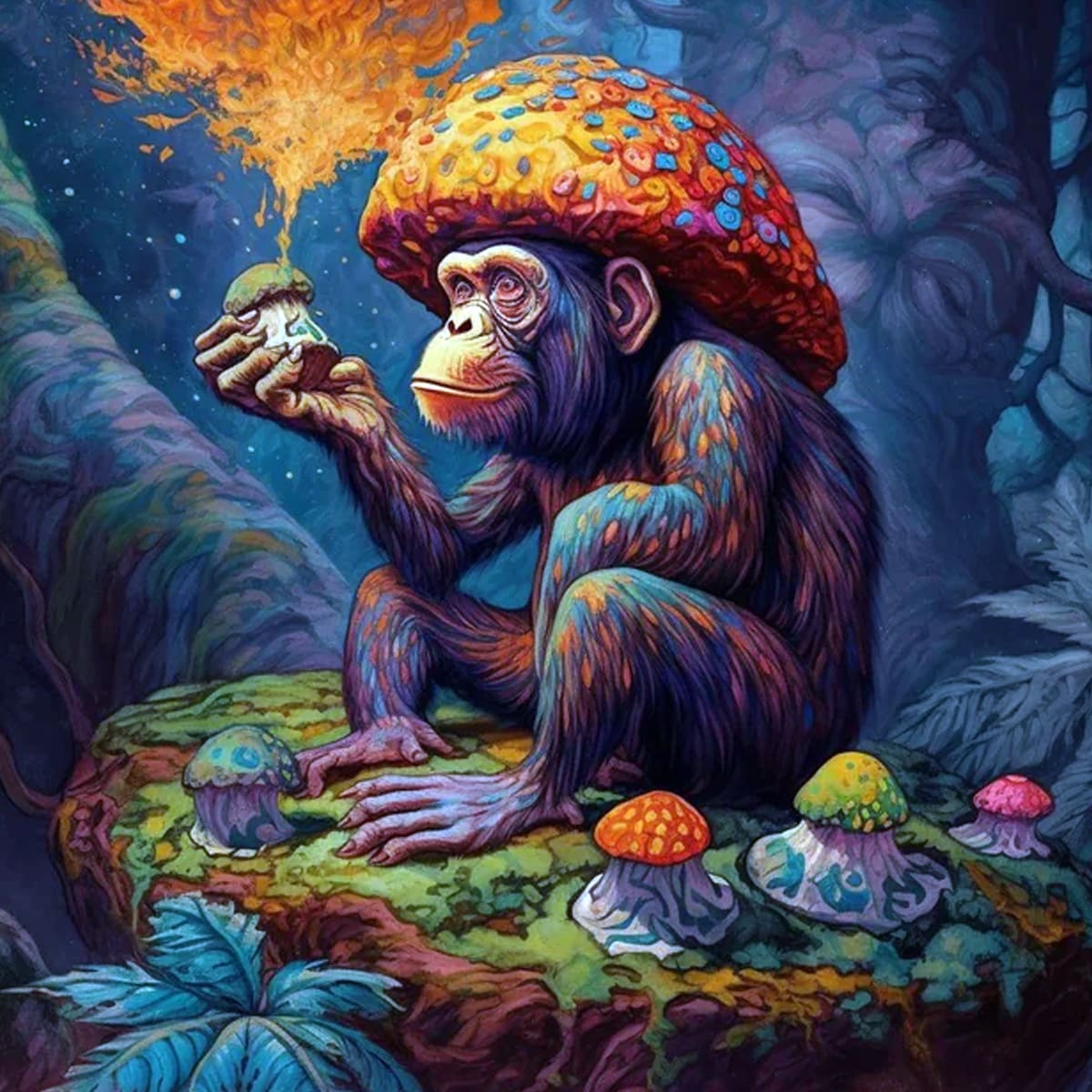The Stoned Ape Theory: Did Magic Mushrooms Shape Human Evolution?

The Stoned Ape Theory: Did Magic Mushrooms Shape Human Evolution?
The Stoned Ape Theory: Did Magic Mushrooms Shape Human Evolution?
Human evolution is a fascinating mystery, and one of the most intriguing theories about our rapid cognitive development is the Stoned Ape Theory. Popularized by ethnobotanist and psychonaut Terence McKenna, this hypothesis suggests that the consumption of psychedelic mushrooms played a crucial role in the evolution of human consciousness, creativity, and intelligence.
What Is the Stoned Ape Theory?
The Stoned Ape Theory proposes that early human ancestors, particularly Homo erectus, ingested psilocybin-containing mushrooms while foraging in Africa. This psychedelic experience, McKenna theorized, may have contributed to enhanced cognitive abilities, improved hunting skills, greater social bonding, and even the development of language and art.
According to McKenna, the benefits of psilocybin consumption in early humans included:
- Enhanced Vision – Low doses of psilocybin could have sharpened eyesight, improving the ability to spot prey or danger in the environment.
- Increased Creativity and Problem-Solving – Psychedelics are known to promote divergent thinking, allowing for more innovative ideas and strategies.
- Boosted Social Cohesion – Shared mystical experiences could have strengthened tribal bonds, leading to more cooperative societies.
- Spiritual Awakening and Early Religion – The profound experiences induced by psychedelics may have contributed to the development of spirituality and religious rituals.
Scientific Support and Criticism
While the Stoned Ape Theory is an exciting idea, it remains speculative and is not widely accepted in mainstream anthropology or evolutionary biology. Some scientists argue that factors like climate change, tool-making, and diet shifts played a much bigger role in human evolution than psychedelics.
However, recent studies on psilocybin’s effects on neuroplasticity (the brain’s ability to rewire itself) suggest that psychedelics can enhance learning and adaptability. While there is no direct fossil evidence proving our ancestors used psychedelics, some researchers believe the idea is worth exploring further.
The Lasting Impact of the Stoned Ape Theory
Despite skepticism, the Stoned Ape Theory has sparked important conversations about the role of altered states of consciousness in human development. The resurgence of interest in psychedelics for mental health, creativity, and spiritual experiences shows that our fascination with these substances is far from over.
Could psychedelics have played a role in shaping human intelligence? While the answer remains uncertain, the Stoned Ape Theory continues to inspire curiosity, debate, and scientific inquiry. Soak that in with some Brain Candy Magic Mushrooms and Gummies,







